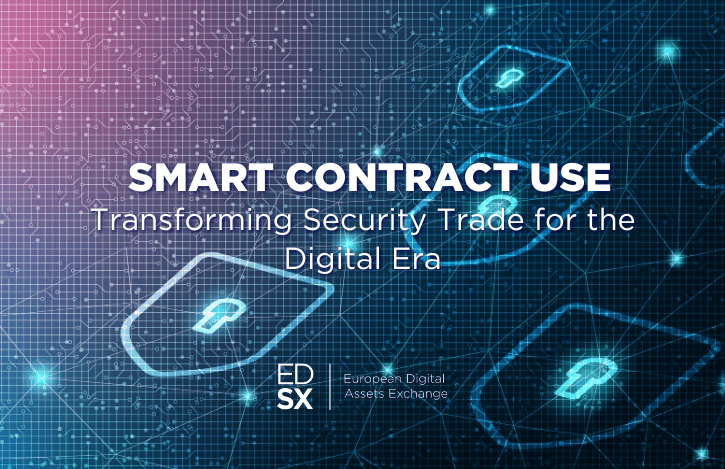Smart contract technology has emerged as a revolutionary force in the securities industry, transforming the way investors invest and trade. With the ability to invest and trade across multiple virtual machines and non-Ethereum chains, smart contracts offer increased efficiency, cost savings, liquidity, transparency, and security. Major players like BlackRock have taken notice of the potential of this technology in the securities industry. This signals its growing importance and potential opportunities. In this article, we will explore the implications and impact of smart contracts and smart contract blockchains on the securities industry, as well as the factors that determine the value and investment potential of these platforms.
The Power of Smart Contracts in the Securities Industry
Smart contracts have gained significant attention in the realm of blockchain technology. As self-executing programs, these are codes that automate actions in agreements or contracts. These contracts enable trusted transactions and agreements to take place among anonymous parties. Furthermore, they do not a central authority or external enforcement mechanism. By eliminating the need for trust between parties involved in an agreement or contract, smart contracts automate the execution of terms and actions, ensuring transparency and efficiency in various industries, including the securities industry.
Security tokens, represented by tokenized platforms, offer a range of benefits compared to traditional securities. These tokens provide increased efficiency, cost savings, liquidity, transparency, and security. By leveraging smart contracts and blockchain technology, security tokens automate trading processes, reducing costs for both investors and issuers. The use of blockchain technology increases transparency, security, and ownership visibility since transactions are recorded on an immutable and decentralized ledger. Additionally, security tokens allow for faster investment opportunities and streamlined processes, reducing the time it takes for investors to commit funds.
The Challenges and Promising Future of Security Tokens
While the potential benefits of security tokens in the securities industry are significant, there are challenges that hinder wider adoption. Regulatory clarity and infrastructure remain key obstacles to overcome. The regulatory landscape surrounding security tokens is still developing, with different jurisdictions having different approaches and requirements. This lack of clarity creates uncertainty for both issuers and investors. Additionally, the infrastructure required to support security tokens, such as secure custody solutions and compliant trading platforms, is still being developed and refined.
Despite these challenges, the future of security tokens looks promising. The potential for increased efficiency, cost reduction, transparency, and liquidity in the finance industry is driving interest and investment in security tokenization. As regulatory frameworks continue evolving and infrastructure improves, security tokens could revolutionize how securities issuance, trading, and management occur.
Investment Opportunities in Smart Contract Blockchains
Smart contract blockchains offer investment opportunities for those with a high risk tolerance. These platforms provide the foundation for decentralized finance (DeFi) and the user-owned economy, offering various features related to throughput, security, and decentralization. The market cap of smart contract blockchains is currently around $247 billion, reflecting increasing user conviction in decentralized applications.
Investors can evaluate smart contract platforms based on factors such as the dapp ecosystem, scalability, security, and upgrades. The dapp ecosystem refers to the range of decentralized applications built on a particular blockchain, indicating its adoption and potential for growth. Scalability is crucial for handling increasing transaction volumes and onboarding new users. Security and decentralization ensure the reliability and censorship resistance of the blockchain. Upgrades and compatibility with evolving consumer demands are essential for the longevity and success of smart contract platforms.
Key metrics to consider when evaluating smart contract blockchains include transaction activity, user wallets, and total value locked (TVL). Transaction activity provides insights into the level of user engagement and network usage. User wallets indicate the number of individuals actively participating in the ecosystem. TVL, or the total value locked, reflects the amount of capital locked in decentralized applications and serves as an indicator of user conviction in the ecosystem.
Leveraging Smart Contract Technology for STO Efficiency
Smart contracts are ideal for facilitating Security Token Offerings due to their ability to automate processes and ensure compliance. STOs involve issuing digital assets that represent traditional securities. The smart contracts help streamline the issuance, trading and management of these tokenized securities on a blockchain. By encoding the features, rights and obligations of a security into a smart contract, activities like capital fundraising, dividend distribution and shareholder voting can be automatically executed according to the terms agreed upon by all parties. This reduces the need for intermediaries and manual oversight, lowering costs for both issuers and investors. Smart contracts also provide a transparent and immutable record of transactions. This makes it easy to verify ownership rights and ensure activities remain compliant with securities regulations.
Smart contracts for Security Token Offerings (STOs) offer another key benefit: they increase liquidity and provide access to the secondary market. A smart contract can program tokenized securities on a blockchain, enabling them to be instantly tradable on decentralized exchanges or broker/dealers. This removes many of the barriers that exist with manual settlement and clearing of traditional securities transactions. Investors can more easily buy and sell tokenized securities from anywhere in the world. It increasing the possible investor base and making it more attractive for startups raising capital. The automation provided by smart contracts streamlines the entire lifecycle of a digital security from issuance through trading.
EDSX and the EOS Blockchain
As a digital asset exchange, EDSX utilizes the EOS blockchain to build its various different products upon it ranging from STOs to NFTs. The EOS blockchain is designed to handle millions of transactions per second through its Distributed Proof-of-Stake (DPOS) consensus algorithm. This high throughput addresses the challenges of scale required for applications like security token offerings which involve thousands of individual investors. EOS’s ability to process transactions rapidly without fees also makes it attractive.
EOS provides horizontal and vertical scalability through techniques like multiprocessing and parallel processing. This enhances transaction speed and allows networks to grow over time as user bases expand. For applications supporting thousands or millions of users, EOS’s scalable architecture is crucial to maintain performance.
The EOS.IO infrastructure streamlines development by managing services such as smart contract hosting, cloud storage, and user authentication. This ease of use could lower the barriers to entry for developers looking to build complex decentralized platforms.
EOS allows for customization of network parameters and upgradeability of its codebase. This flexibility enables continuous enhancements and fixes to support evolving business needs over the long run, which is important for projects relying on smart contracts and digital assets.
Looking Ahead
Overall, Smart contract technology is revolutionizing the securities industry, offering increased efficiency, transparency, and liquidity through security tokens. Despite regulatory challenges and infrastructure development, the future of security tokens looks promising. Both in terms of improving efficiency and reducing costs in the finance industry. Investors can explore investment opportunities presented by different smart contract platforms, evaluating factors such as the dapp ecosystem, scalability, security, and upgrades. Staying informed about developments in the cryptocurrency space is crucial for investors interested in smart contract blockchains. As the space continues to grow and adoption rises, the investment case for smart contract blockchains matures, offering exposure to disruptive forces and the potential for more efficient systems.
(Note: This article is for informational purposes only and should not be considered as financial or investment advice. Readers are encouraged to conduct their research and consult with a professional financial advisor before making any investment decisions.)

Based in Zug, the platform is fully compliant with all Swiss laws related to financial intermediaries, banking, anti-money laundering, and organized trading facilities. Among its core values, there are innovative solutions through blockchain technology, which ensures security and liquidity.
EDSX is the first platform in Europe with primary and secondary markets for both institutional and retails. EDSX is a pioneering platform that employs the world’s leading technology to globally list security tokens in both primary and secondary markets, listing digital securities of real financial instruments to the public with a decentralized peer-to-peer exchange. Our goal is to fully engage every aspect of the financial revolution.
Do you have a question for us?
Send your query here:
[email protected]

